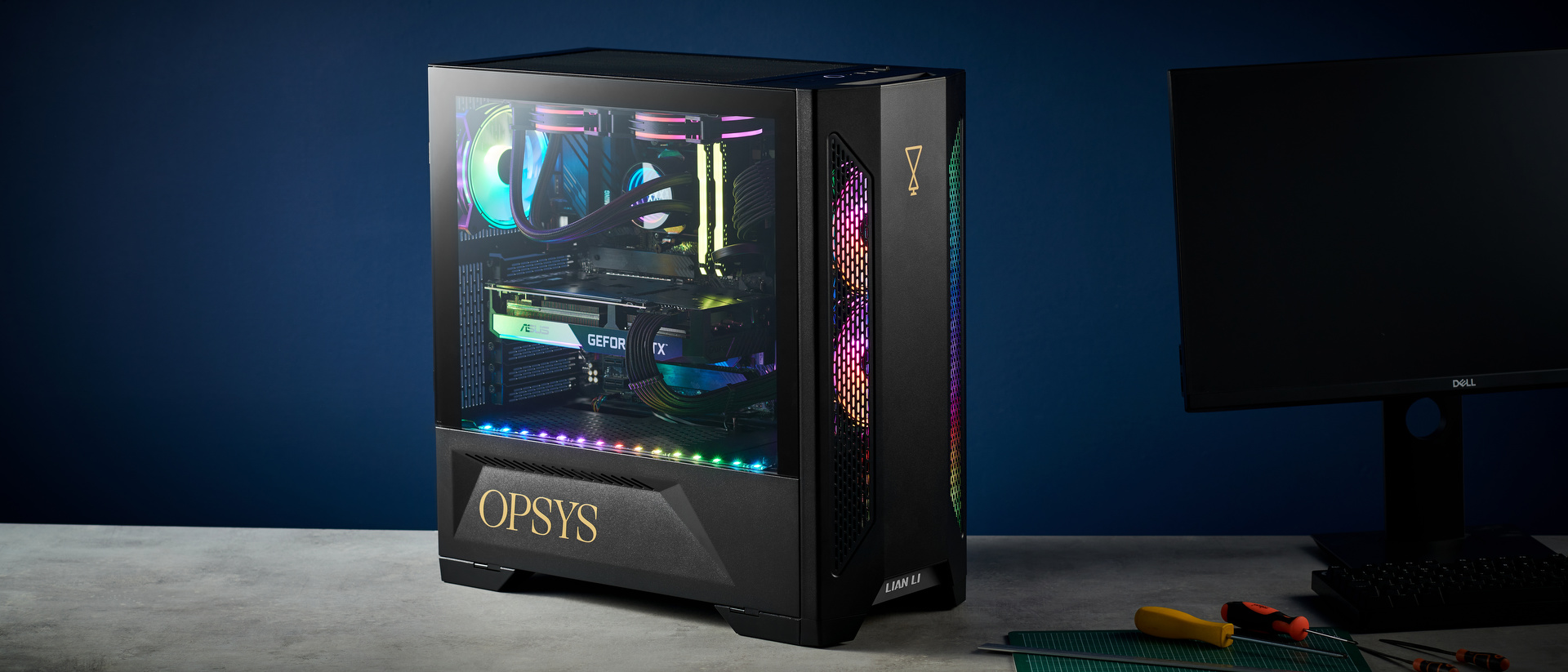TechRadar Verdict
Where pre-builds have historically been snubbed by the PC gaming community, Opsys proves that sometimes having the work done for you really does pay off. The Gallantis is beautifully designed and robustly built, without any of the stress of trying to get your hands on the latest components.
Pros
- +
Beautiful bespoke design
- +
Fantastic build quality
- +
Easily upgradable
- +
Solid performance in games
- +
Better priced than other boutique builders
Cons
- -
Still expensive
- -
You have to like RGB
Why you can trust TechRadar
Two-minute review
Opsys is a relatively new boutique PC builder, but anyone who has taken a peek at its website will see that a great deal of attention has been spent on perfecting the brand's unique aesthetic. Thankfully, this gaming PC isn't just all beauty and no brains.
The Gallantis is one of several pre-designed models to choose from for anyone that doesn't like to be overwhelmed with options, but for anyone looking for a completely personal touch, there is also the recently launched custom configuration tool that includes some fantastic visualization aids.
We're in a bit of a weird place for PC gaming right now. Historically when people take their first steps into the hobby you'd be instructed that building your own rig won't just save heaps of cash, but you also have the freedom to make any customizations you like. This is sadly not currently the case, with even the most seasoned PC hobbyists finding it near impossible to secure hardware at retail cost, largely due to the ongoing shortage of hardware like the best graphics cards and best gaming CPUs that builders tend to go for, making building your own system grotesquely expensive.
For the foreseeable future, prebuilds and custom rigs are the way to go for anyone not looking to make a simple upgrade, and Opsys has absolutely nailed its entrance to this market, especially for anyone making the transition from consoles to computers to get their gaming fix. When we opened the delivery box for the Opsys Unit, we found that everything had been 'idiot-proofed' with some fantastic artistic licensing.
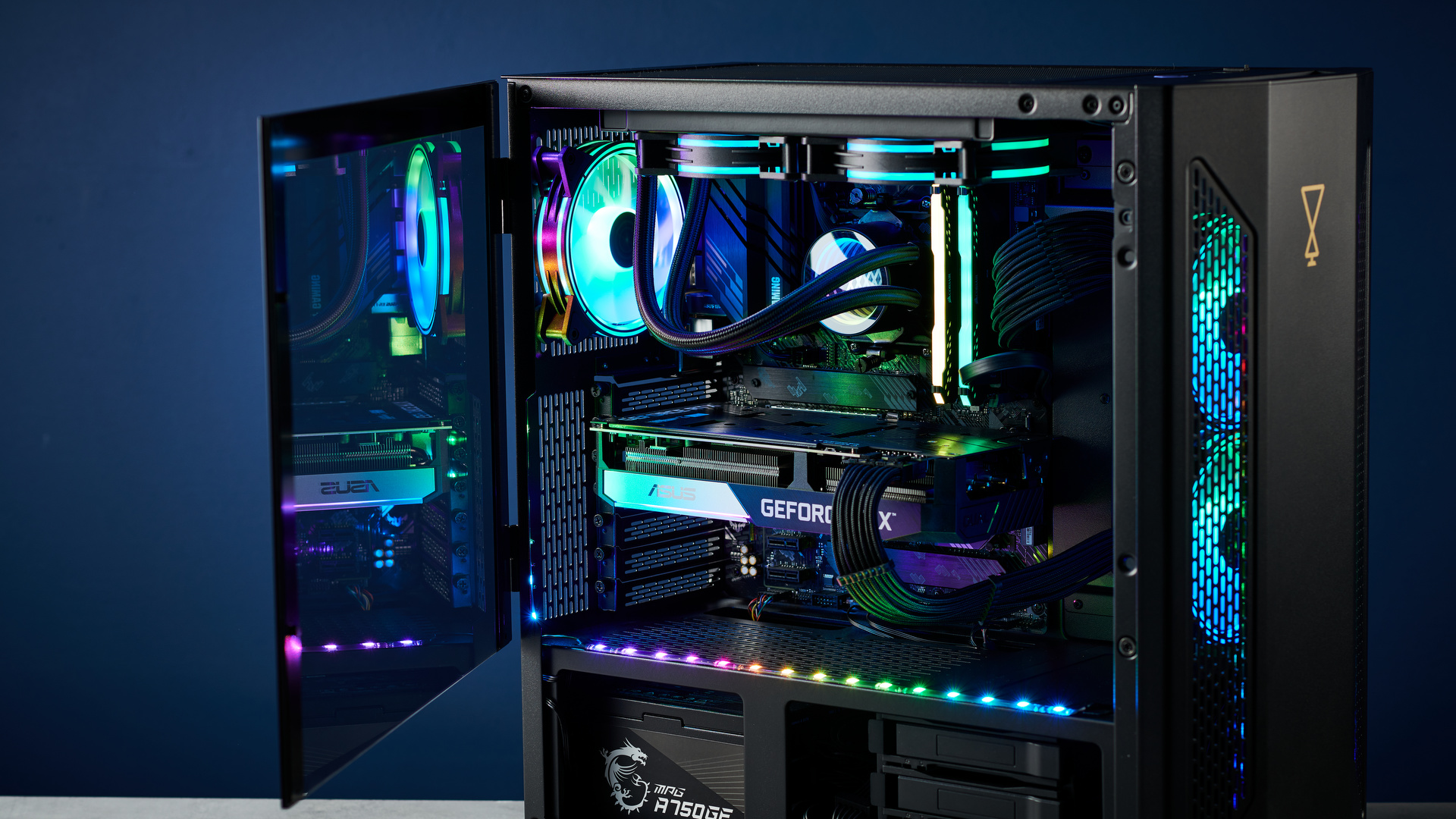
Warning notices in the style of police tape were placed on delicate areas on the rig, informing the user how to appropriately open and operate sections of the PC, along with a small library of guides and instructions. The components are fully explained, providing ample education on how the system works for anyone who has yet to experience PC gaming, all while giving you the complete freedom to simply plug-in and play should you want to ignore the supplied leaflets.
All parts for the components that were not used in the actual build are also supplied in the main box should you choose to upgrade at a later date, as well as a few Opsys branded freebies. These included a cloth face mask, a keychain and a solid metal Hanayama puzzle shaped like a chess piece. We won't ruin the surprise of solving it for anyone, but the unboxing experience was one of the most entertaining we've had.
Of course, reviews aren't down to just presentation, but given our review model was running a Ryzen 5 5600X CPU and GeForce RTX 3070 GPU we were suitable impressed with its gaming performance. The 3070 hits the sweet spot for 1440p, happily hitting 120FPS in Fortnite without enabling DLSS in 'Epic' graphics settings. At standard 1080p you can expect to play the best PC games cranked up to the highest graphical options available without issue.
In all, the Opsys Gallantis is well worth checking out if you have a PC gaming itch that you want scratching, especially if you don't want to wait for computing components to fall in price.
Price and availability
Here is the Opsys Gallantis configuration sent to TechRadar for review:
Case: Lian-Li Lancool II ARGB
CPU: 3.7GHz AMD Ryzen 5 5600X (6 Cores, 12 Threads, up to 4.65 GHz)
Graphics: NVIDIA GeForce RTX 3070 16GB
RAM: 16GB Corsair Vengeance RGB Pro (DDR4; 3,600MHz)
Motherboard: Asus TUF Gaming B550-PLUS
Power Supply: 750W MSI MPG A750GF
Storage: ADATA SX8200PNP 512GB (NVMe M.2); Seagate Barracuda 1TB HDD
Ports front: 2 x USB-A 3.0, 1 x headphone jack, 1 x microphone jack
Ports back: 5 x USB-A 3.0.2 x USB-A 2.0, USB-C 3.1, 1 x optical audio out, 5 x analog audio jacks, 3 x DisplayPort, 2 x HDMI, Ethernet
Connectivity: Integrated 802.11 Wi-Fi, Bluetooth 4.2
Operating system: Windows 10 Home
Weight: 30 pounds (14kg)
Size (W x D x H): 18.8 x 9 x 19.44 inches (47.8 x 22.9 x 49.4 cm)
The review unit we tested works out to about £1,900 (around $2,690 / AU$3,500) and is currently available in the UK with free shipping included. Units can also shipped over to the rest of Europe via DPD, with Opsys stating that expansion to the USA is planned for Q2 2021.
The cost certainly isn't cheap but a powerful gaming PC rarely is, and when compared to other options currently on the market this could be seen as a fair price for what you're getting. The service is certainly very bespoke, and with the current component prices being as high as they are, the same build (exchanging the Opsys-branded liquid cooler for the NZXT Kraken X53) on PCPartPicker works out at £2,590 (around $3,660 / AU$4,700). If you're wanting to build a similar system yourself then you'd have to pay the inflated price of products or be patient in the hope that you can snag some parts at MSRP.
That said, other UK-based providers such as PC Specialist and Overclockers offer some pre-built systems at a similar cost, occasionally cheaper for a comparable system. You can also pick up off-the-shelf desktops such as the HP Omen 30L for £1,600 ($2,250 / AU$2,900 ) that comes equipped with a Ryzen 7 3700X processor and an RTX 3070 GPU, or a beefier Alienware Aurora Ryzen R10 at £2,150 ($3,050 / AU$3,900 ) with a Ryzen 9 5900 CPU and RTX 3070.
As Opsys is a boutique PC builder, there are far too many customization options to list that affect the final product price, but from playing around with different configurations on the Opsys website, the pricing for your final build isn't as outlandish as we've seen elsewhere.
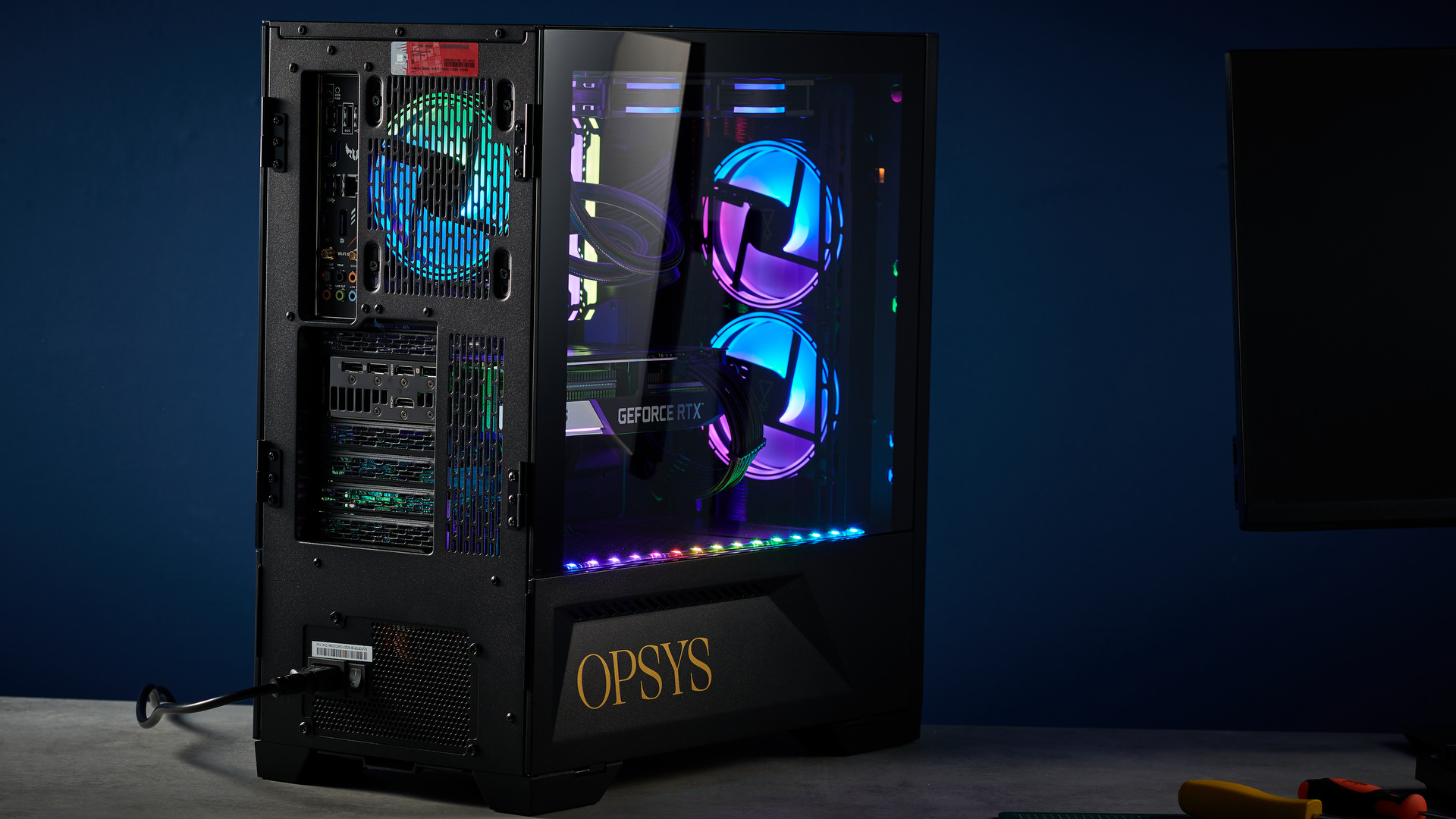
Design
As far as we're concerned, the entire Opsys range could dominate most of its competition in a straight-up beauty contest – providing you're into the edgy style. The look of the Gallantis is very typical of the current trends, available in either a black or white variant to suit the rest of your setup with a healthy dose of programable RGB lighting on almost every component.
You can always customize the internals, but all cases currently available for selection have a clear panel built-in to display the guts of the PC. We couldn't find a model without at least some lighting effects so this likely won't be your product of choice if you prefer something a little more minimalistic or stealthy. You can also include Opsys branding across the front and side of the case which helps to give the system a more high-end look.
The build quality is very impressive, with the unit coming completely encased in packing foam, with additional protection placed on the inside of the rig. Most of the components are from well-trusted, established brands like Asus and Corsair, save for the Opsys branded AIO liquid CPU cooler. We didn't experience any issues with the temperatures during use despite this, and the 'infinity mirror' effect fits the theming well.
Sign up for breaking news, reviews, opinion, top tech deals, and more.
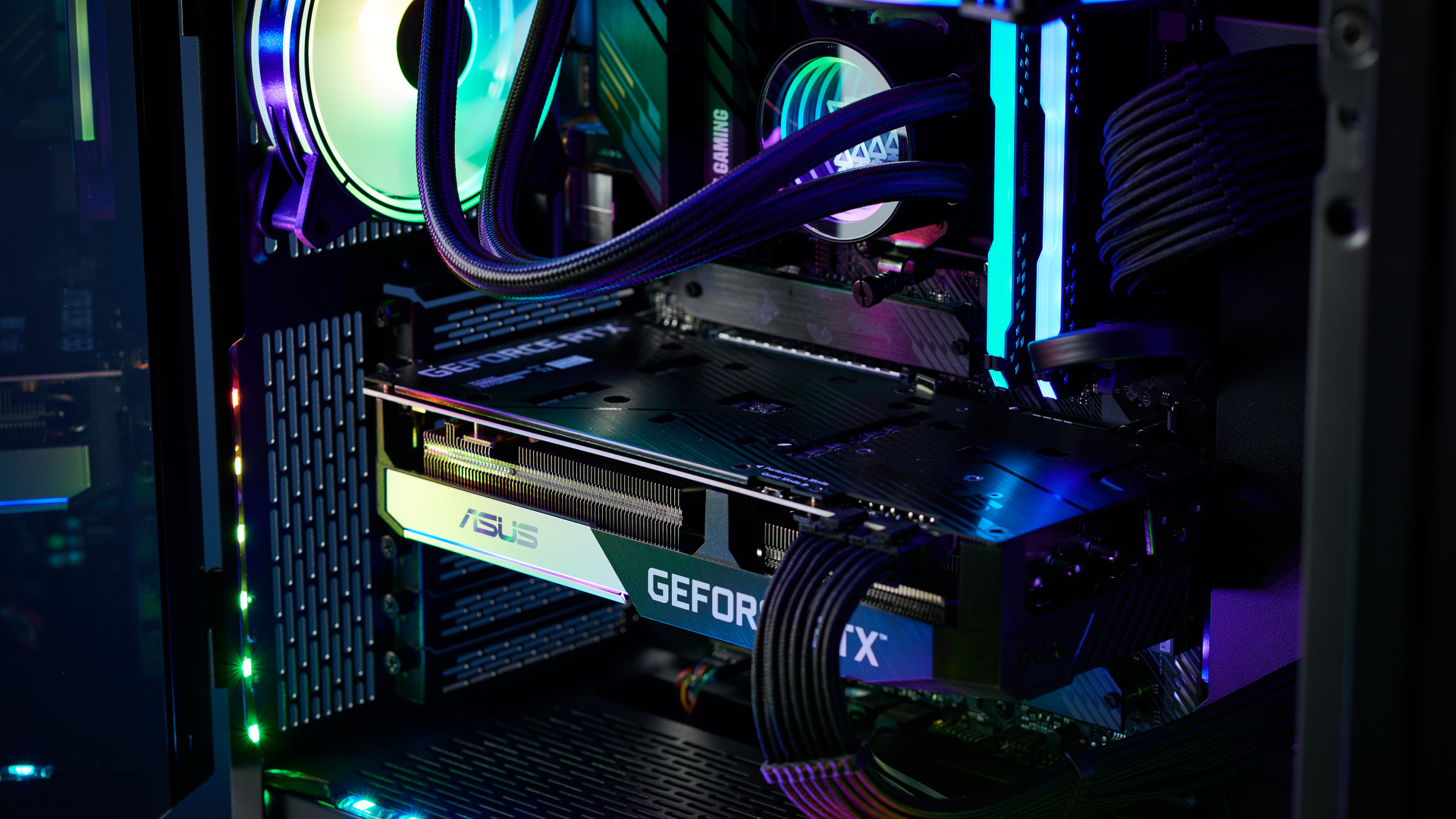
The glass panel door of the Lian Li case is a tad difficult to open given it has to clear clasp or pressure point. It does allow for full access to the internal components when open, however, and can be removed for safety when cleaning up or upgrading the build. You're also getting the standard magnetic dust filter and a removable front panel that comes with the case, but the Gallantis comes with the Opsys logo embellished on the front and sides of the chassis.
In all, it's a very eye-catching design and one that wouldn't look amiss on the desks of eSports teams and popular Twitch streamers. There are few system builders around that provide a product this nice without jacking up the price substantially, especially given this is the 'look' that a lot of first-time DIY builders go for at the moment.
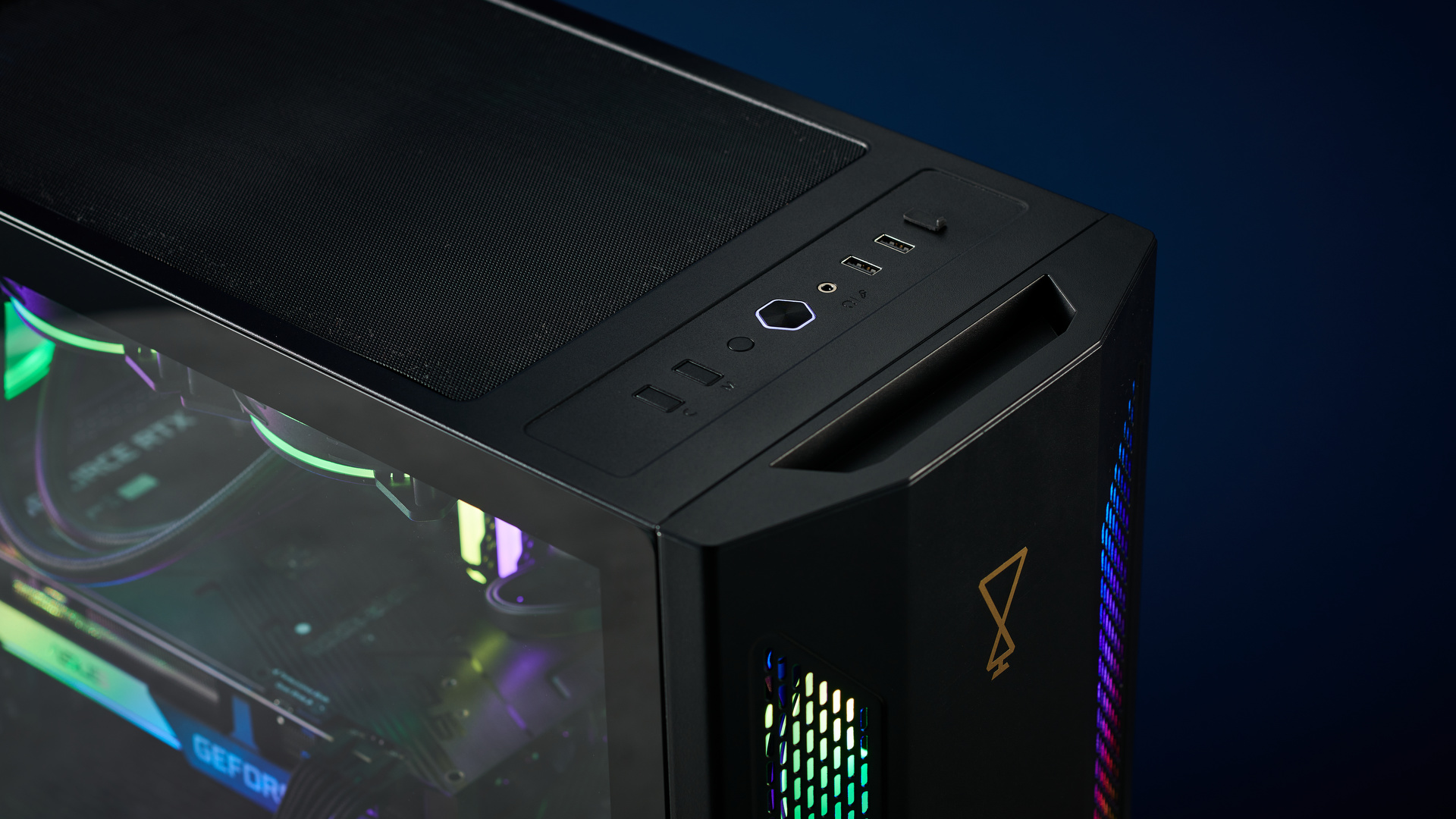
Performance
Here’s how the Opsys Gallantis performed in our suite of benchmark tests:
Cinebench R20: 4010 points
Geekbench 5.3 Single Core: 1,633; Multi Core: 7,844
PCMark 10 Home: 6,477
3DMark Time Spy: 12,140 | Fire Strike: 27,121 | Night Raid: 52,173
Total War: Three Kingdoms: 351 fps (1080p, low); 106 fps (1080p, ultra)
Metro Exodus: 211 fps (1080p, low) 93.2 fps (1080p, ultra)
Our review model of the Opsys Gallantis packed an AMD Ryzen 5 5600X, 16GB of RAM and an Asus branded GeForce RTX 3070. These specs are more than capable of playing the best PC games at 1440p without issue, though you'll struggle to play at 4K resolution on more demanding titles if you have a compatible gaming monitor. Playing Doom Eternal was an absolute breeze, happily smashing 200+ average FPS at 1440p.
For more graphically demanding titles like Cyberpunk 2077 you can expect the framerate to be perfectly playable at 1080p, with an average of 51FPS at the highest graphics settings, raytracing enabled and DLSS set to quality.
The benchmarks tell a similarly capable story, so it's unlikely you'll be disappointed in any of the game performance unless you're trying to push AAA titles to the absolute limit. For most current-gen games though, this really is a fantastic build.
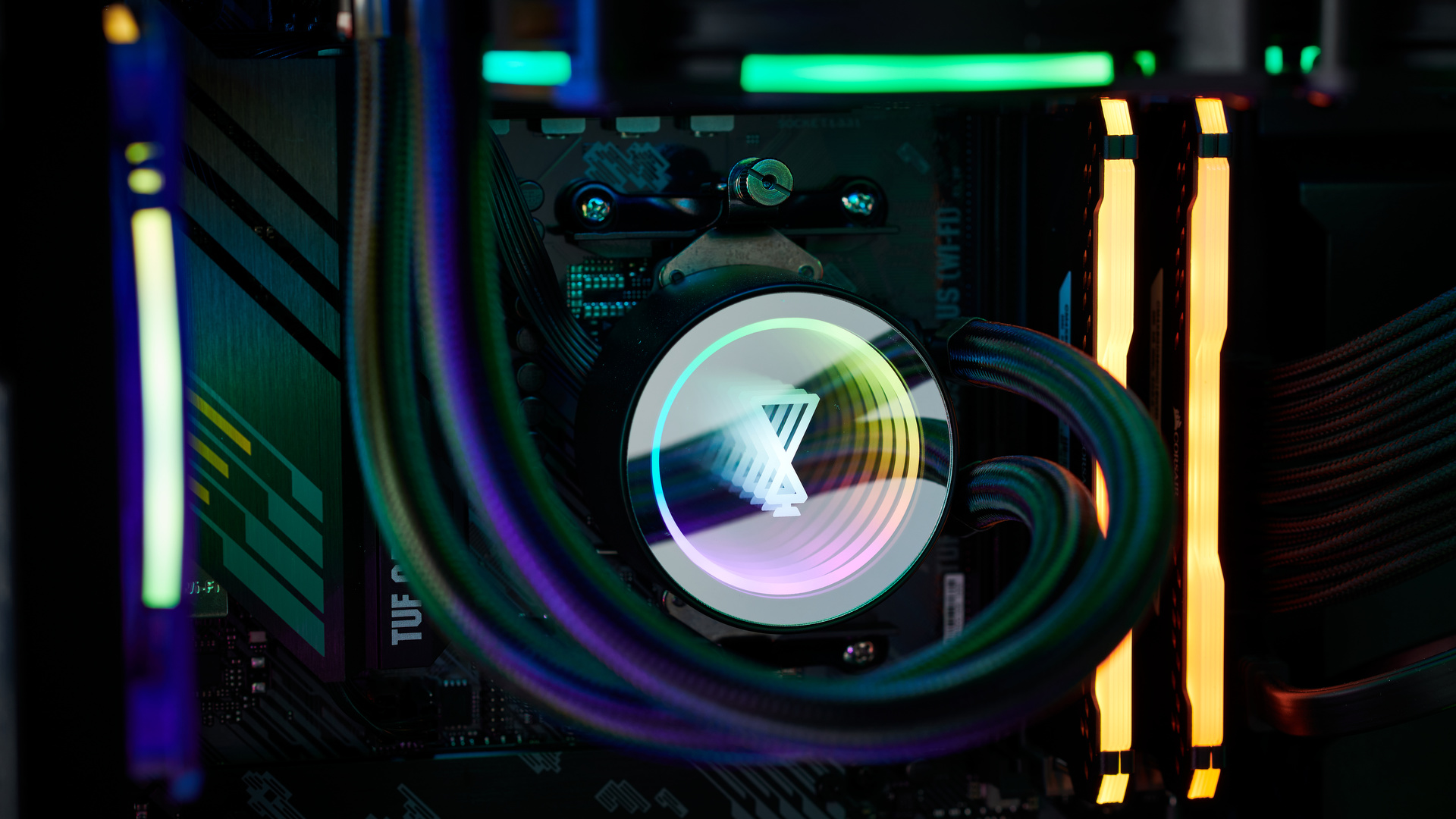
The case fans ran silently and cool even under stress, with temperatures remaining at satisfactory levels after hours of use. We couldn't detect any background noise on audio recordings taken during our testing period either, so you're unlikely to find the Gallantis annoying in a quiet environment (providing you're not bothered by RGB lights illuminating the room).
And of course, the entire system is fully upgradeable for future-proofing should you want to make alterations like increasing your RAM or storage. The PC boots up very quickly from being completely shut down, and given it uses an SSD as a boot-up drive you shouldn't experience any bottlenecks when running overly demanding applications or software.
Given the vast customization and high build quality, we can recommend the Opsys Gallantis for anyone wanting a gaming rig comprised of the latest generation of hardware. Given how difficult it is to get our hands on the individual components to build a similar system, and the outrageous prices parts are selling for when they do become available, the Opsys lineup is actually a fairly priced option that looks far nicer than many non-boutique pre-builds.
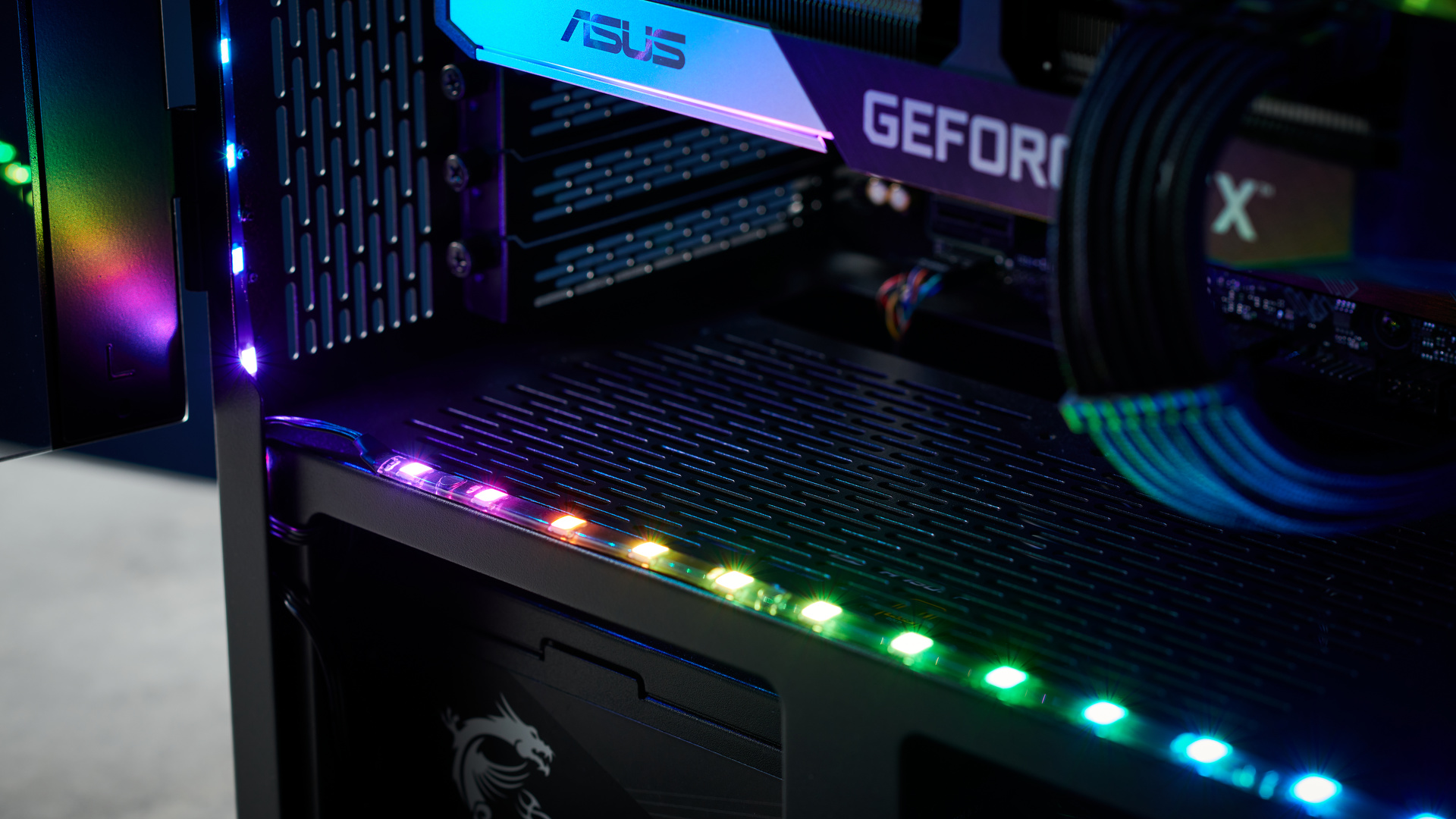
Buy it if...
You want the latest hardware
Most of the Opsys models have the option of being built with the latest storage, processors, and graphics cards without the ridiculous prices seen online right now.
Style is important to you
Even the budget friendly models have had a lot of attention spent on them to make the systems look beautiful, and the Opsys logo and branding is a nice inclusion.
You like full customization
The configuration tool is one of the best we've seen, allowing full visualization for the wide range of available components you can slap inside a build.
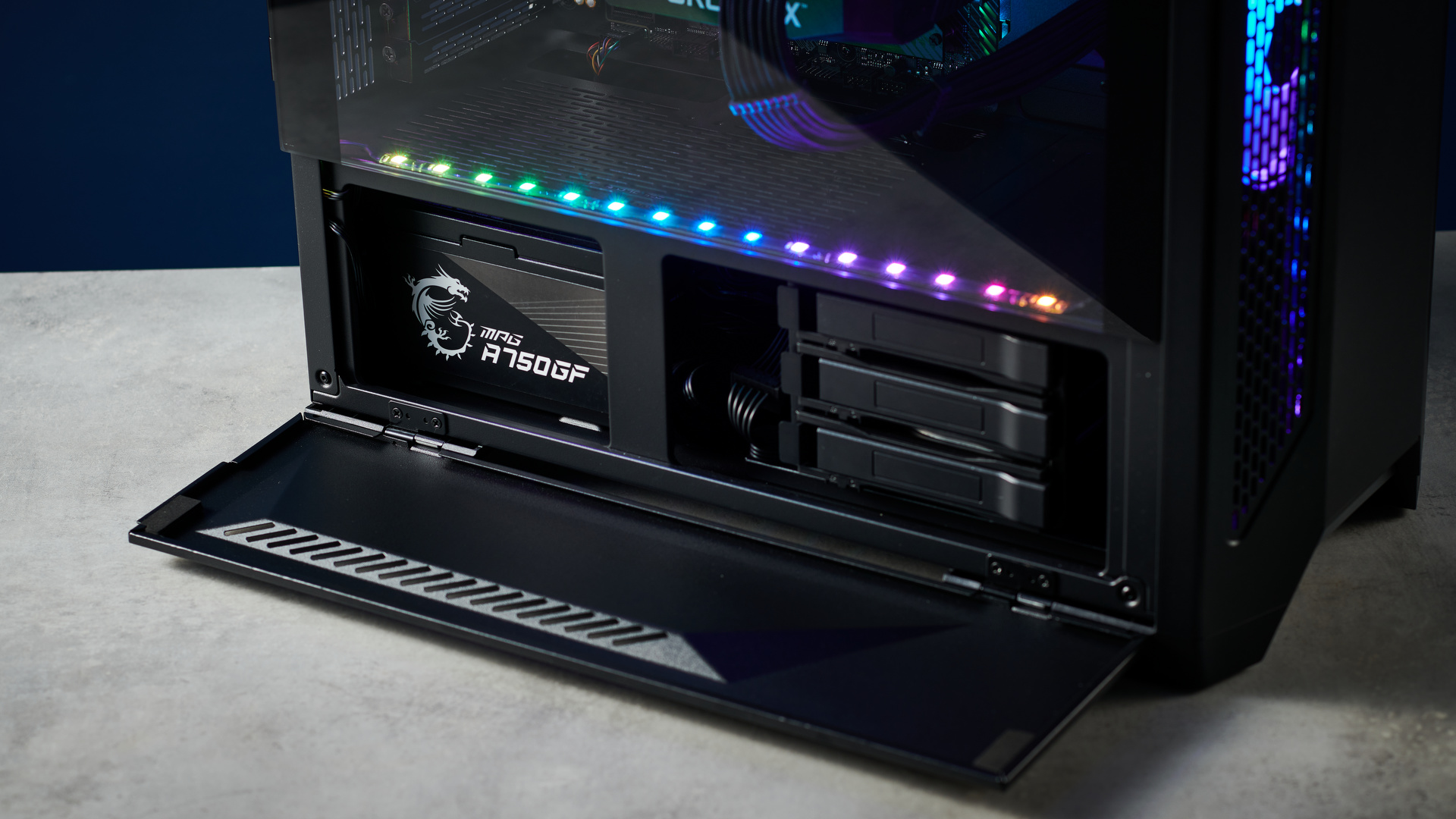
Don't buy it if...
You don't like RGB
You can always switch it off, but every model in the range appears to come with some integrated RBG lighting on the case. If you have a serious aversion to the 'happy rainbow' lights then tough luck.
You want a custom water loop
Despite all the customization options, if you really wanted to include a specifically-branded custom water loop you'd need to look elsewhere.

Jess is a former TechRadar Computing writer, where she covered all aspects of Mac and PC hardware, including PC gaming and peripherals. She has been interviewed as an industry expert for the BBC, and while her educational background was in prosthetics and model-making, her true love is in tech and she has built numerous desktop computers over the last 10 years for gaming and content creation. Jess is now a journalist at The Verge.
